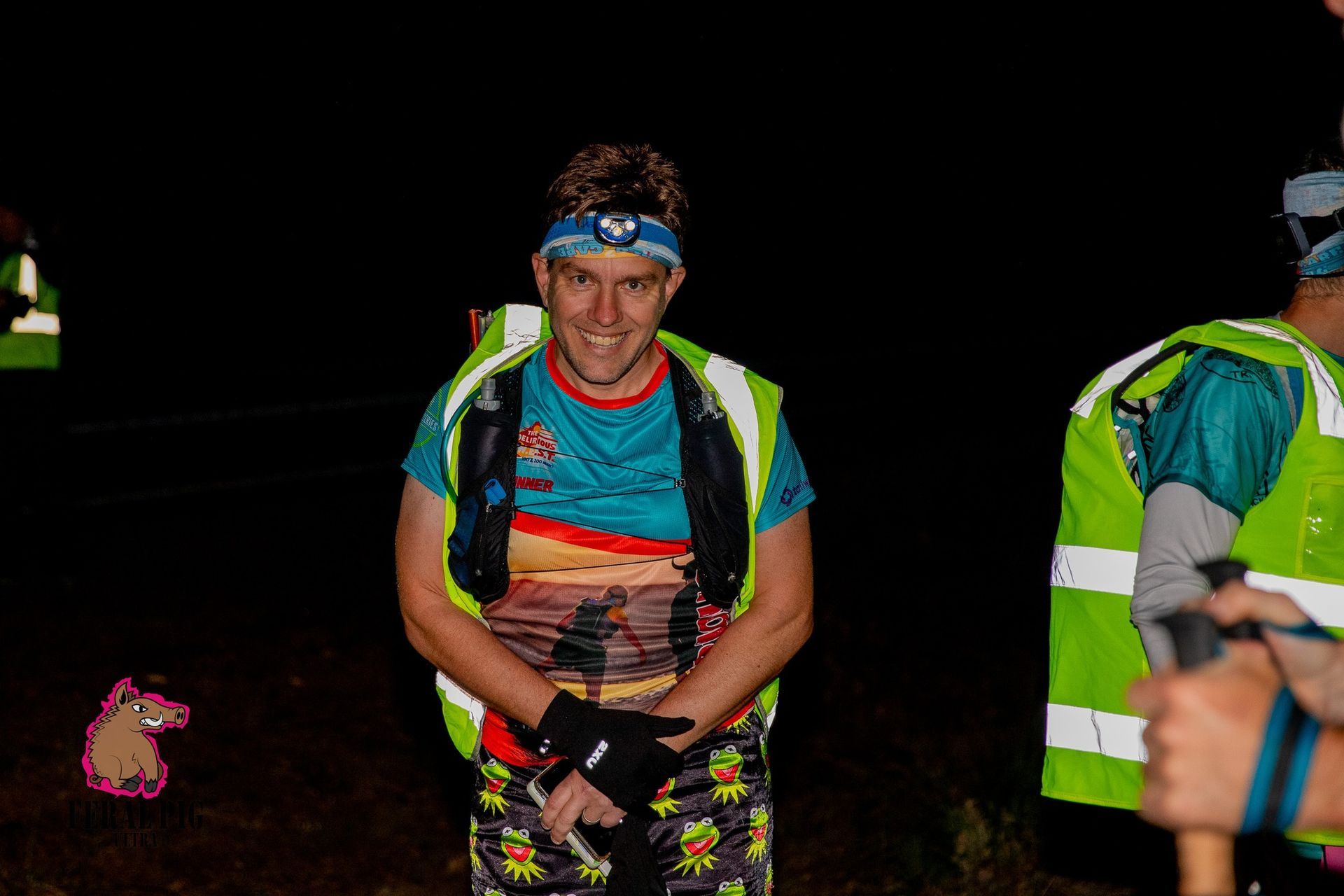
COACH’S CORNER - How to tackle the post-race blues by Adam Keighran
adam keighran gives you the steps to a healthy recovery from the post-race blues

Running is a sport with no shortcuts. And honestly, that’s one thing that makes it so damn great. It doesn’t play favourites, it doesn’t let anyone off the hook, and it doesn’t care about your profession or background. The only demands are your dedication, effort, and consistency—along with the usual helping of blood, sweat, and tears. And that is regardless of what your actual running goals are.
There are two types of runner.
Firstly we have the runners where running is simply a lifestyle. They get their daily runs in without too much fuss. They pop in their headphones, hit the pavement, and call it a day. They love it. There’s no pressure. No need to chase times or podiums—just a simple, enjoyable routine. And that, for some, is perfectly fine! Running certainly doesn’t need to be a race for everyone.
But for the others, training is about more than just staying fit. It’s about chasing a personal goal whether it be with time or distance peramiters. We sign up for races, hire coaches, follow training plans, buy all the gear, and eat the right foods (or try to avoid the wrong ones). A LOT goes into it. We pour a lot of time, energy, and focus into preparing for an event.
As a coach, I can honestly say there’s nothing I love more than guiding someone through their journey to the start line. It’s such a privilege to be part of that process—the nerves, the excitement, and the emotions that come with it. And it takes weeks, months, or sometimes even years of hard work to get to that moment. But then, in the blink of an eye, the race is over. The adrenaline fades, the finish line is behind you, and suddenly, the excitement, the motivation to train, and the structure of your routine all seem to vanish. And, it is this that can lead to what we often refer to as the "post-race blues."
Suddenly, without your “race” you’re left feeling aimless, without direction. The habits you’ve built—waking up early to run, eating healthy, staying motivated—start to slip away. And before you know it, laziness and bad habits creep in, leading to a bit of a downward spiral.
So, what can you do about it?
Recovery Is Important, But Don’t Stop Your Routine
Yes, recovery is important—your body needs time to rest and repair. But what I tell my athletes is to not use recovery as an excuse to completely step away from the sport. A break from training doesn’t have to mean removing yourself entirely. Even if you’re not in peak condition, a light jog or an easy walk can definitely help you stay active while giving your muscles time to recover and still stay connected to the sport. So even if you're not ready to jump into running right after a race, don't be afraid to get outside and walk. Walks also give you the mental break that’s sometimes needed after a race. They allow you to clear your mind, reconnect with your surroundings, and continue the rhythm of your regular running routine, but at a much gentler pace. So, don’t be afraid to swap out your run for a brisk walk every now and then—it’s a great way to stay active without the pressure of racing. Sometimes, just getting out there can bring back the joy of running without the pressure of a race. Remember, the goal is to enjoy the movement, not necessarily to hit a specific target
Plan Ahead: Look to the Next Race
Before you even cross the finish line, maybe think about the next one. This is something I always encourage my runners to do, especially when they’re training for a major event. Pick out a few races you’re excited about in the upcoming months or even the next year. Having races lined up can keep you motivated and focused, ensuring you don’t lose momentum once one goal is completed. The key is to avoid putting all your eggs in one basket. Having something to look forward to makes it easier to get back on track and helps prevent you from falling into a post-race slump.
Run With Friends
One of the best ways to rediscover the fun of running is to take the pressure off and run with others. Join a casual run group or find a few friends to head out with. Running with others can remind you that running doesn’t always have to be about competition or performance—it can just be about enjoying the moment and having a good time. Social runs also take away the feeling of isolation that can creep in after a race.
Try Something New
If you’re struggling with the post-race blues, consider shaking things up a bit. Try a different type of workout to complement your running. Cross-training activities, like cycling, swimming, yoga, or strength training, can be a great way to maintain your fitness and break the monotony of your usual running routine. You don’t need to give up running entirely, but adding variety to your routine can reinvigorate your passion for fitness while helping you become a more well-rounded athlete.
Running Happy is the Goal
At the end of the day, the goal is to run happy. I know it’s not always easy. Not every race will go as planned, and results won’t always be what we hope for. But with a little preparation, a positive attitude, and a willingness to mix things up, you can overcome the post-race blues and continue to love running. Remember: running is a journey, not a destination. The post-race blues might hit, but with the right mindset, they don’t have to last long.
Adam Keighran has been coaching for a number of years and is the coach behind nuff's fitness in nsw. he has a particular interest in writing programs and race strategies for marathons and beyond, and can help you achieve your goal with 12hr and 24hr events in particular. IF YOU WOULD LIKE MORE INFORMATION ON BEING TRAINED BY adam, CLICK THROUGH HERE TO OUR AURA ENDORSED COACHES PAGE.








